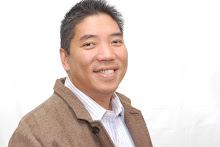By Ambeth Ocampo
Philippine Daily Inquirer
First Posted 23:36:00 11/11/2008
THRICE COLONIZED and with an archipelagic landscape, the Philippines is a young nation constantly in search of self. History is central to this search for identity and thus the teaching of history in schools is both informative (as an academic discipline that studies the past) and formative (when the past is utilized to place the student in the context of the nation--its past, present and future). Thus, the structure and presentation of history in textbooks, classrooms, official holidays and commemorations, street names and monuments, while seemingly innocent, become contested territory when history as a social science or an academic discipline becomes a handmaid to citizenship, nation building and nationalism.
It is the beginning of yet another semester, and I will enter a classroom and have 80 pairs of eyes following me around, 80 pairs of ears that I presume are listening to every word that proceeds from my lips. I have been teaching since 1985, but I still feel stage fright at the beginning of every term.
The first day is crucial. While many teachers are content with meeting the class, distributing the syllabus and explaining course requirements, I give a full lecture using all the tricks I have learned over the years. Students will remember your first day. If you do well, that first impression will be carried till the end of the term. If you don't make an impression, you are doomed for the whole term. You can never catch up, you can never make up.
While I have always been interested in history, I did not foresee my future as an academic and didn't really prepare for my future (my undergraduate thesis was actually on "Food in Kapampangan Culture"). The turning point in my life came when I met two senior members of the National Historical Institute: the late E. Aguilar Cruz (journalist, writer, painter, wonderful raconteur who served as permanent Philippine representative to Unesco in Paris--all this without having finished college) and the late Teodoro A. Agoncillo (nationalist historian, opinionated raconteur, academic who built a distinguished and colorful career likewise without a PhD). Agoncillo got me interested in research, Cruz opened doors to a career in journalism where I specialized in history.
I began writing in 1985, the tail-end of the Marcos period, in the pro-Marcos Daily Express. In those days of strict censorship, history was considered a "safe" subject and I was allowed to write anything I wished. Then, as now, sensitive readers noticed that I actually commented on the present using the past.
From the beginning, I have always been suspicious of textbook or official history, often asking questions or exploring other possibilities in something that has come down to us over the years as truth. Writing for the general reader also made me write without jargon, in a clear and simple way which is frowned upon by some constipated academics. To engage readers uninterested or hostile to history because of their traumatic experience with the subject in school, I would often write about the lives and times of men and women canonized as heroes to free them from their monuments of stone and bronze and make them human again. My light and often mischievous slant can also be credited to my having started my career in the same room as the infamous show-biz columnist Ricky Lo.
I wrote feature articles on history and eventually wrote a column that appeared in the Lifestyle/Entertainment page of the now defunct Daily Globe. Letty Jimenez-Magsanoc suggested that I move to the Inquirer or at least have my column moved from Lifestyle to the Opinion-Editorial page. I didn't realize it then, but I often wrote serious stuff but these were not taken seriously because the column appeared next to a photograph of Dolphy or a starlet in half a dress. I moved to the Inquirer in 1993 and now provide foil in a spread where columns comment mainly on politics and current social issues.
Professional and academic historians did not look kindly on popularization. While much of my writing is culled from primary sources, the style and form are not academic. Critics unfairly demand that my column utilize footnotes, have a clear theoretical framework, and should be written in the deadly prose better suited to academic journals. Partly as a result of this aggravation, I pursued (and still pursue) a PhD to get my license to practice history. Often addressed as "Doctor," I have always been tempted to have calling cards made with the letters "HpD" after my name instead of "PhD" to signify "Hindi pa doctor" (Not yet a doctor).
While I am an associate professor in the history department of the Ateneo de Manila University, it is journalism that provided me with a public voice that led to books, lectures, consultancies, and eventually my appointment as chairman of the National Historical Institute in 2002. It was then that I realized one of the great ironies of my life: I built a reputation as an iconoclast, my articles often challenged textbook or official history but with the stroke of a president's pen, I suddenly found myself the keeper of that same official history I had previously challenged.
With this personal introduction, I begin yet another semester introducing my students to the joys of Philippine history.
Comments are welcome at aocampo@ateneo.edu
Thursday, November 13, 2008
Subscribe to:
Post Comments (Atom)

No comments:
Post a Comment